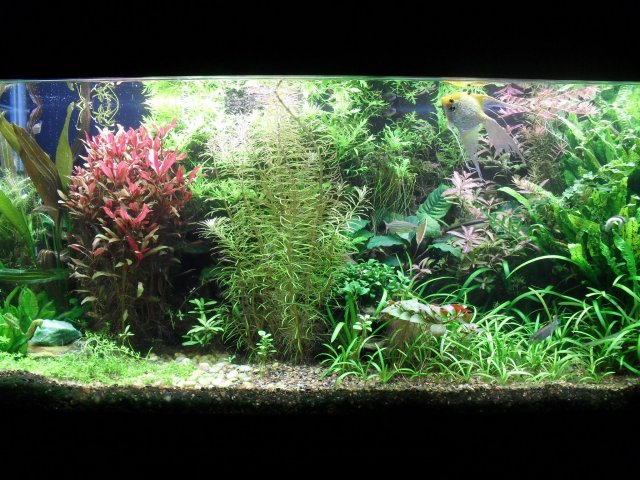Diana Walstad's book: The Ecology of the Planted Aquarium has a chapter dedicated to this. It is true and some plants can inhibit some types of algae as well as other plants. I just finished the chapter last night.
Yes, if you grind up any old plant and put these ground up extracts into a test well with algae, ..............
That's NOT the same as allelopathic control of algae in LIVE plants.
Such information can be misleading.
Ole Pedersen also made a refute to the chapter.
There's a simple test you can do as control if you believe this, simply add activated carbon, it's used a control for allelopathic test where folks actually can and have demonstrated the effects.
AC removes the Alleopathic chemicals very well, so if you think there's anything to it, then you should see negative responses using AC, but no one I've ever met, nor myself and own test has been able to show this.
Knock your self out. Speculation does not make it true.
A test to see if it is...........that is a lot more useful than simply speculating.
http://www.tropica.com/article.asp?type=aquaristic&id=531
I also made the point that strong plant growth, no matter which species of say 300+ species all seem to have the same impact on algae.
What are the odds that all 300 species all make the same chemical and have the same intensity? Not likely, as most plants are amphibious as it is and have little need for chemical warfare against algae.
I'll take the bet and roll the dice based on those odds.
That and I've actually set up such test and done chemical removal without any effects.
So there's several layers of doubt here.
Duckweed competes with algae in the simplest of terms: light blocking, most floating plants are excellent at that.
Regards,
Tom Barr



